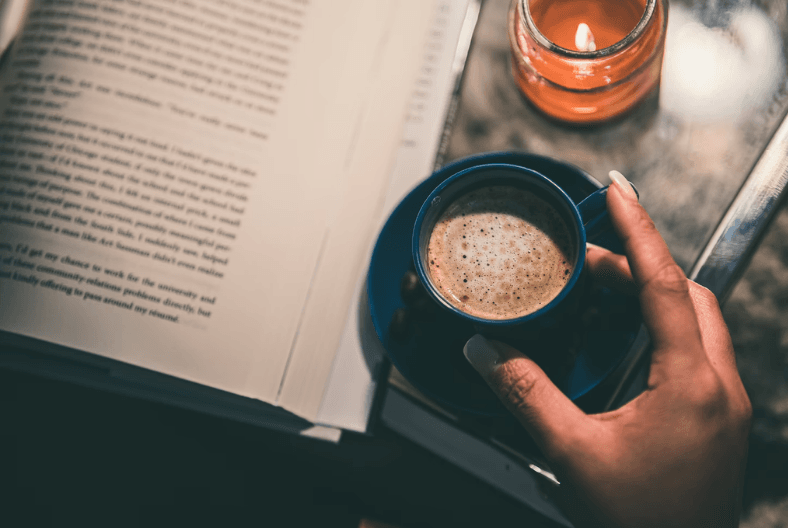Alongside the Covid-19 pandemic is a parallel outbreak of stress, anxiety, and mental health pressures. This is too often brushed under the carpet when talking about the effects of Covid-19 and the actions needed to combat it, but anxiety, stress and depression can have serious negative effects on people’s well-being if left unaddressed. In the absence of the usual activities people engage in to relieve pressure and relax, what practical steps can you take to maintain and improve your mood?
Take a Breath
Stress, as anecdotal and scientific evidence attests, can kill you. How? Research shows that elevated cortisol levels and inflammation can do major damage to our bodies, right down to the cellular level. Stress can have a negative impact not just on our mood and relationships but also our cardiovascular, nervous, digestive, immune and total health. No matter the cause of your stress, it’s wreaking havoc, and as a society we haven’t been great at giving people actionable tools and advice for disconnecting and, most importantly of all, breathing.
This is stress under typical conditions. With Covid-19, everyone’s stress has understandably increased – with fewer outlets for managing it. Gyms have been closed; people have been forced to shelter-in-place with their families/pods without any break; vacations have been curtailed; people are learning new ways of working and studying with very little human contact; not to add the major stresses of potential job loss, insecurity about the Covid-19 illness itself and general worry about when and how things might get back to some semblance of normal.
It’s no wonder stress is at an all-time high. Here are some basic tips for relieving the pressure, which can apply now and in the future.
1) Stay Present
It’s easy to let the mind run away in the pandemic, with so many new developments and anxieties vying for our attention. Worries about our own health, or that of our family, or concerns about work and society, can lead to us being caught in a cycle of anxiety about the future. Try to short-circuit this by focusing on what you’re doing today, and being present. Some people find mindfulness and meditation practices helpful. Others benefit from losing themselves in whatever they are doing at the time, whether this is cooking a meal, doing their job, or enjoying a bath, good music, or a Sudoku.
2) Stay Informed
Staying informed about the pandemic isn’t always easy reading, but having accurate and up-to-date information is a good way of setting fears to rest. Being informed lets you assess the risks objectively, and helps you plan for any proposed changes before they impact your life. Seek out news from a reliable source and steer clear of rumours and unfounded stories. Try to avoid obsessively checking news sites. An update once or twice a day is normally enough.
3) Be Kind To Yourself
Above all, be kind to yourself. If you’re feeling stressed, anxious, irritable, or depressed, don’t be hard on yourself about this. Pandemics are rare events, and it’s entirely natural to feel concerned during a crisis. Give yourself the time to relax, and in assessing your responses and feelings, give yourself the same understanding and tolerance that you would do if a close friend or relative was experiencing the same thing.
4) Keep Connected With Others
In the USA, ‘social distancing’ is referred to as ‘physical distancing’, and this is probably a more accurate description of what is required. Although we are being asked to take common sense precautions to keep people safe and control the pandemic, the last thing anyone needs is increased social isolation from the people and causes they care about. Get involved in online communities, activities, and social platforms to the extent that you’re comfortable doing so. Some people love livestream festivals, Zoom pub quizzes, and lengthy WhatsApp video chats, and others find these intrusive and claustrophobic. Find your own balance and feel good about it.
5) Eat Well
Mental well-being springs from the body, so it is essential to continue eating well and maintaining good nutrition during periods of stress and anxiety. Try to get a good balance of food, including sufficient fresh fruit and vegetables, and consider high quality vitamins or vitamin D supplement if you’re not getting as much outdoor activity as you would do normally. Of course it is safest to seek the guidance of a qualified natural health practitioner to prescribe supplements.
6) Look After Your Body
Sunlight and exercise are essential for physical and mental health so, if you can, try and get out for a walk or run every day, to keep your metabolism going. You’ll find this will increase your mood and distract you from your anxieties and stress. Even if you’ve stopped going to the gym, there are still plenty of wellness activities you can do at home, including virtual Pilates classes, and home gym workouts. You could even take up dancing in your living room!
7) Treat Yourself
There are a wide range of therapies and wellness treatments you can try that may have a positive effect on how you are feeling. You may wish to take up massage if you live with a partner, as this not only increases physical relaxation, but also induces the feel-good factor of physical skin-on-skin contact. Hyperbaric therapy also has strong associations with increased feelings of well-being, health, and energy, and many of our customers have reported positive effects on their mood and stress levels from using our chambers during the pandemic.
8) Breathe
One of the most basic things people forget to do – and suffer the consequences of – when they are stressed is breathe. General breathing exercises and intentional breathing is one strategy for keeping the mind clear and focused on the most basic element for survival: oxygen.
Another way to both oxygenate more completely and get away from the stress of daily life is with hyperbarics. For the average person, it might sound extreme, but hyperbaric sessions, during which you comfortably lie in a hyperbaric chamber, give you the chance to ‘turn off’ and enjoy the calming nature of sensory deprivation, slowing your mind down and giving your body an extra dose of much-needed relaxation and wellness.
Take Steps Today For a More Relaxed and Sstress-Free 2022
The Covid-19 pandemic has been an enormous source of stress, with almost everyone having experienced anxiety in some way. An active wellness regime, with proper attention to physical and mental health, relaxation, and good nutrition, won’t prevent stressful events from occurring, but it will help you cope better, and bounce back stronger from these things when they do.
To find out more about how hyperbaric therapy can be a part of your stress-reduction routine and can strengthen and complement your wellness regime, please get in touch with one of our hyperbaric advisors today.
Image Source: Unsplash



